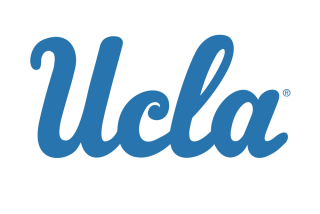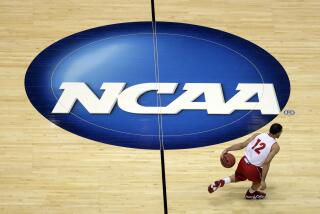PACIFIC 10 SANCTIONS WASHINGTON : Hard Hits
A look at some of the harshest NCAA penalties against football programs: * SOUTHERN METHODIST UNIVERSITY
In 1987, the Mustangs received the NCAA’s harshest sanctions, including the elimination of their 1987 football season. They were limited to only seven road games in 1988. Penalties on scholarships and other sanctions lasted through 1990.
While SMU was already on probation for previous illegal payments and other infractions, 13 football players were paid $47,000 during the 1985-86 academic year, and another $14,000 was given to eight athletes in 1986. Bill Clements, former president of the university’s board of governors, had found out about illegal payments to players in 1984. But he and a few members of the board decided that the best way to proceed, despite a previous NCAA order to stop, was to keep paying the players while at the same time trying to phase out such practices.
* OKLAHOMA STATE
Because of more than 40 violations, including cash-and-car packages to at least one player, Oklahoma State incurred a four-year probation. It was prohibited from playing in bowl games for the 1989, 1990 and 1991 seasons, banned from live television from 1989-90 and lost a total of 15 scholarships.
NCAA officials also considered eliminating three conference home games. But because of Oklahoma State’s cooperation in the investigation, the committee did not apply that penalty.
Barry Sanders, the 1988 Heisman Trophy winner, did not return for his senior season at Oklahoma State.
* HOUSTON
Coming off of one of its most successful seasons, Houston was placed on probation in 1988 for three years by the NCAA. The Cougars were barred from bowl games for the next two years and from television for one. They also lost 10 scholarships for the 1989 season, leaving Coach Jack Pardee with 15.
The penalties stemmed from 250 violations that included money being paid to players. They occurred during the tenure of Bill Yeoman, who retired following the 1986 season after 25 years as coach.
“The violations on occasion were so numerous,” the NCAA said, “that the former head football coach (Yeoman) and his assistants, even after they began telling the truth, were not able to recall all the occasions they gave money to student-athletes.”
More to Read
Go beyond the scoreboard
Get the latest on L.A.'s teams in the daily Sports Report newsletter.
You may occasionally receive promotional content from the Los Angeles Times.










